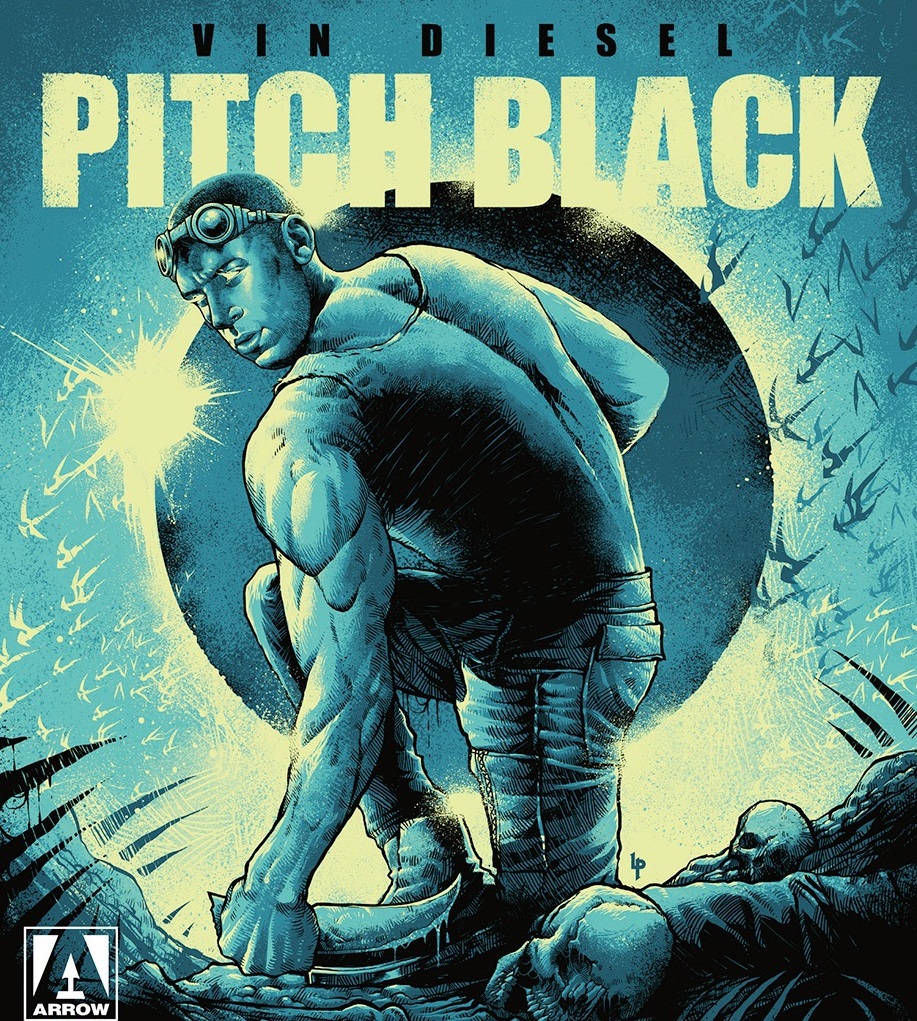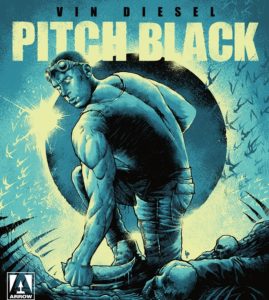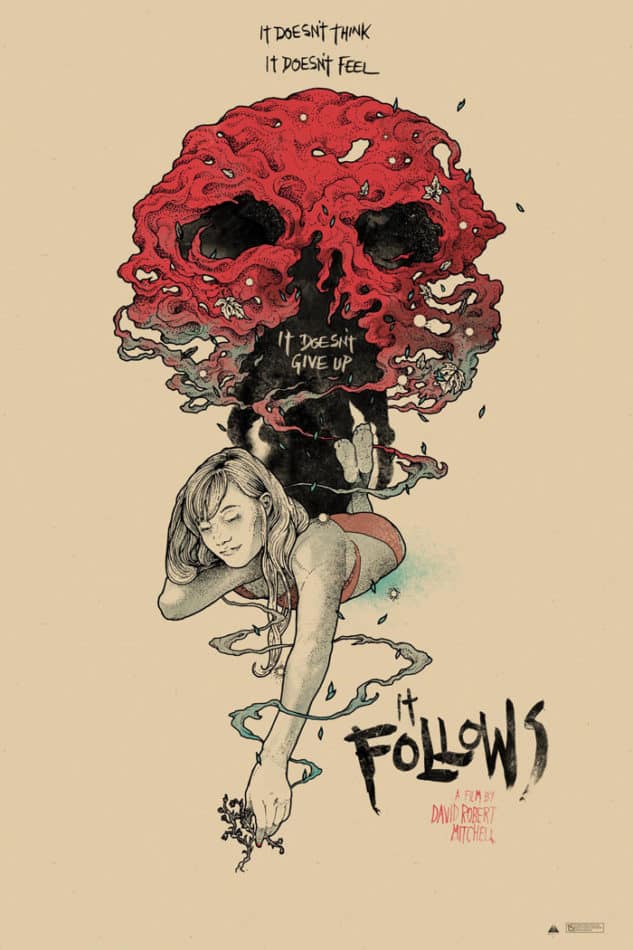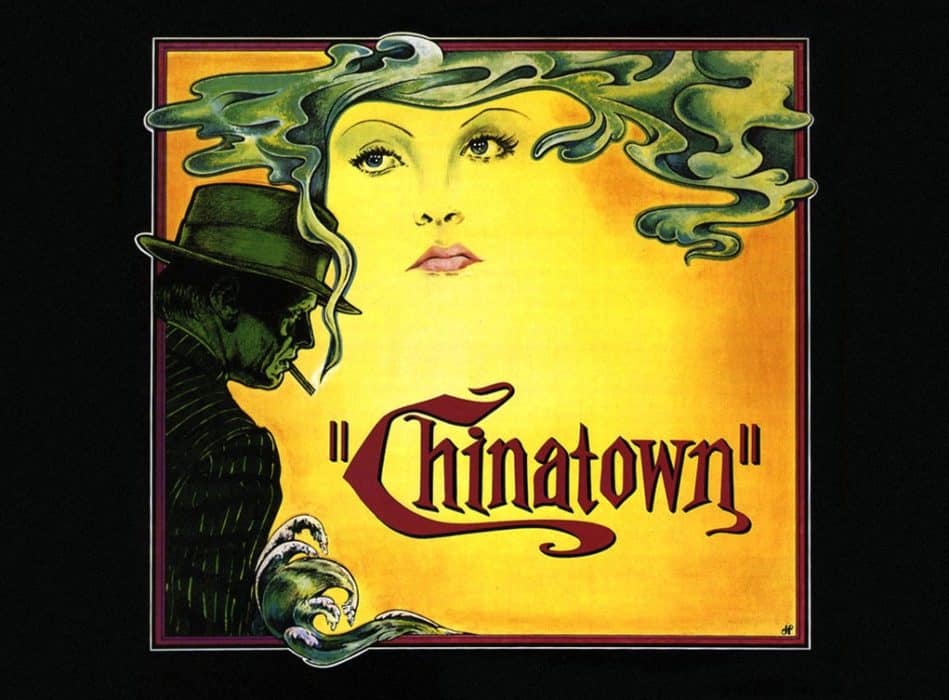
Pitch Black spawned an extensive and relatively cult franchise built around popular anti-hero Riddick, but the film itself represents quite humble roots. Emblematic of this is composer Graeme Revell’s score for Pitch Black.
Revell’s score starts off promising enough, with ambient synth introducing the ship “Hunter-Gratzner” and its voyage through deep space. While not novel, it is deftly handled and a strong start. However, while the music during the initial journey lingers for a significant period, allowing it to build and develop, much of the rest of the music does not. We’re largely given brief fragments or snippets, seemingly plugged into scenes wherever most appropriate: seconds of frantic drumming during an action sequence; moments of crescendoing noise to build fright. It is as if the music chases the action, missing the build-up before realizing what is transpiring and diving immediately into the climax. Because the music and scene often aren’t in accord, the result is jarring and the score doesn’t properly amplify what appears on screen.
There are some rather interesting moments. Revell often inserts Middle Eastern-inspired drumming throughout the score as a homage to the film’s futuristic Muslim characters. In fact, the drumming sequences appear to be Revell’s strong point as their frenetic pace, when they appear for more than mere moments, can be unsettling, tense, or action-packed.
Another issue is the lack of a strong theme for Riddick. A film that is so built around one character similarly needs a strong motif to further focus on and develop that character. The semblance of a theme is oddly brassy and orchestral, seemingly in contrast to his anti-hero persona. It is difficult to make out throughout the film and has little development.
What may be surprising, though, is this is not a condemnation of Revell. When listening to the physical release of the score, many of these issues disappear. While some of the instrumentation and composition may still feel rather generic (due in part to the score’s obviously dated electronics), the fragmentation goes away. Sequences that were ten seconds on film are three minutes in the release, with cues ebbing and flowing, almost certainly matching the film’s events. Similarly, the main theme becomes much clearer and oft-repeated, with significant variations throughout to mirror Riddick’s gradual change (most notably in “Come With Me,” featuring a stripped and slowed down theme that shows a rarely-seen empathetic side). The difference between what Revell wrote and what actually appeared in the film is stark. It is a shame that more of his score wasn’t used, doing a disservice both to the Pitch Black and to Revell.



